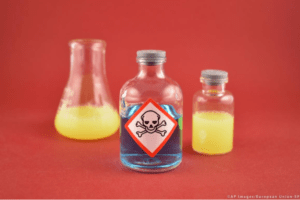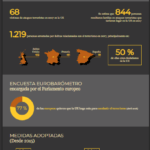The Council adopted two important priority files under the Security Union which strengthen EU rules on explosives precursors and facilitate law-enforcement access to financial information. The reinforced rules on explosives precursors will ensure stronger safeguards and controls, including online, on the sale and marketing of the dangerous chemicals, which have been used to produce “home-made” explosives in a number of terror attacks in Europe. The new measures on access to financial information will allow law enforcement to obtain important financial information across borders quickly, helping them fight serious crime and terrorism more effectively.
The EU already has strict rules in place on access to chemical substances that can be used to produce homemade explosives, however the new Regulation will:
- Ban additional substances: two additional chemicals will be banned: sulphuric acid, which is a central ingredient for the production of the highly explosive TATP (tri-acetone tri-peroxide); as well as ammonium nitrate, a chemical predominantly used as a fertiliser.
- Strengthen licensing and screening: national authorities will be required to carry out a more in-depth check on members of the public applying for a license to purchase restricted substances. In particular, they will need to check the legitimacy of such a request and perform a careful security screening, including a criminal background check on the applicant.
The new measures for cross-border access to financial information by law enforcement authorities will complement the EU Anti-Money Laundering framework while ensuring:
- Timely access to information: law enforcement authorities, Asset Recovery Offices (AROs) and anti-corruption authorities to have direct access to bank account information contained in the national centralised bank account registries. All Member States have to set up these registries under new EU Anti-Money Laundering rules.
- Better cooperation: the new rules will also ensure greater cooperation between national law enforcement, Europol and Financial Intelligence Units (FIUs) and will further facilitate the exchange of information between the national FIUs.
- Stronger data protection safeguards: the new Directive provides for strong procedural and data protection guarantees in line with the Charter of Fundamental Rights.
Next Steps
Both texts will now need to be signed by the President of the European Parliament and the rotating Presidency of the Council after which they will be published in the Official Journal of the European Union. The new rules will enter into force 20 days later and as regards explosives precursors, they will start applying across the EU in 18 months´ time. Member States will have 2 years to transpose the new measures facilitating access to financial information into their national laws.
More information
Access the complete news
Related news: Terrorism: stricter EU rules to prevent home-made bombs
Related document: Virtual currencies and terrorist financing







Leave a Reply